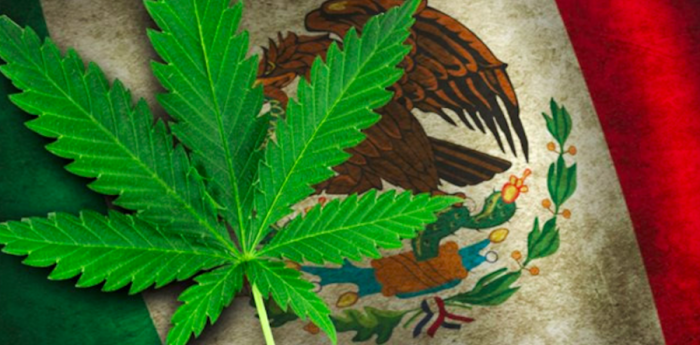Recreational cannabis legalization bill approved by Mexican Senate
On Thursday, November 19, the Mexican Senate signed off on a pivotal cannabis bill to legalize recreational cannabis. Final approval must now be secured before the current congressional session concludes on December 15. The landslide vote could pave the way for Mexico to become the world’s largest legal cannabis market.
If Mexico City lawmakers are successful in their endeavors to clear the legal cannabis initiative in the lower house of Congress, the third largest country in Latin America could see a significant reduction in crime and drug cartel violence. Over 250,000 fatalities have occurred since the former President Felipe Calderón sparked a wave of violence to stamp out cartels; he has since been accused of having ties with criminal organizations.
A number of well-established cannabis companies have already indicated interest in participating in Mexico’s prospective legal market, such as The Green Organic Dutchman and Canadian producer Canopy Growth.
An overview of Mexico’s recreational cannabis legalization bill
In the event that the lower house of Congress gives Mexico’s recreational cannabis legalization bill the green light, the North American country would become the third – after Canada and Uruguay – to legalize the plant in its entirety. Aside from decriminalizing cannabis for recreational consumption, the bill would also open the door for scientific research, as well as industrial and medical use.
According to a statement from the Senate, the primary goal of Mexico’s recreational cannabis legalization bill is “to promote peace and security in society, contributing to the reduction of the illegal market for psychoactive cannabis and with it, organised crime, corruption and violence”.
A successful vote in Congress would enable consumers to carry a maximum of 28 grams of cannabis on their person. Furthermore, consumers could grow a maximum of six plants at home; this limit increases to eight if two consumers of legal age live in the same residence.
Retail businesses in Mexico would be legally able to sell cannabis products to adults. However, individuals who possess more than 28 grams could face criminal prosecution or a hefty fine. Moreover, Mexico’s recreational cannabis legalization bill prohibits children from buying, consuming or selling the drug.
Approximately 40 percent of the country’s available cultivation licenses will be reserved for companies specializing in farming and/or production.
Morena party supported Mexico’s recreational cannabis legalization bill
The National Regeneration Movement, better known by its acronym “MORENA”, is supportive of Mexico’s recreational cannabis legalization bill. Morena party members constitute the bulk of both congressional chambers. Up until December 2017, the Cardenist and social-democratic political party was fronted by Mexico’s current President, Andrés Manuel López Obrador.
Despite strong support, President López Obrador has been reluctant to support the measure. Notwithstanding his lack of support, he has not opposed the bill, either. According to the left-of-center Morena party’s Senator Jesusa Rodríguez, the bill strives to “improve living conditions” for Mexicans who have been hurt the most by the war on drugs.
“Cultivation, processing, marketing, exportation and importation and use for research purposes of cannabis are regulated. Medical and pharmaceutical use is regulated and established in the General Law of Health,” said Senate Majority leader Ricardo Monreal. “With this law, people can access cannabis under clear criteria, through licenses related exclusively to cultivation, transformation, commercialization, exportation, importation and investigation.”
Lawmakers have long pushed for cannabis reform in Mexico. On October 31, 2018, the Supreme Court ruled that the law prohibiting recreational cannabis was unconstitutional. Then, in November of 2018 – one year after lawmakers legalized medical cannabis – the Supreme Court ruled that an adult-use market should be legalized.








